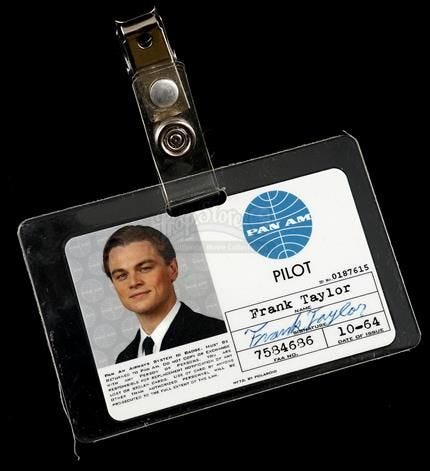How style shapes perception, influences power dynamics, and quietly dictates who we admire.
A series exploring the psychology of personal style
“To maintain your independence, you must always be needed and wanted. The more you are relied upon, the more freedom you have.”
Law 11 in The 48 Laws of Power by Robert Greene
A traveler glimpses a golden thread, faintly glimmering, woven through the trees. Pulled forward by curiosity, he follows it through the woods. The path becomes more familiar, easier, and soon he cannot imagine another way to navigate the tangled woods. He moves without question, with ease, guided by something he feels is inevitable. This is the power of quiet influence—not to force, not to control, but to become something others cannot help but follow. Personal style is one of the greatest tools we have in manifesting aspirations, projecting authority, and creating a lasting legacy. By dressing all the way to the end, you can align your current presence with the future you’re building.
The most powerful people are the ones with the highest level of influence. They have become irreplaceable, perpetually just outside our grasp. In style, this is achieved through exclusivity, through creating an image and presence others come to rely on. Having people depend on you isn’t about control; its subtle, even comforting. We like having someone to look to, someone to help us see the way. Even envy, when expected, becomes familiar—and familiarity breeds comfort. When people come to rely on you, even their envy won’t be able to keep them away.
I believe there are three key methods to mastering dependence: employing signature pieces as a calling card, mastering the art of exclusivity, and understanding the psychology of visual authority.
Use a Signature Piece as Your Calling Card
What do you want to be known for? An easier way to think about this is what do you want to project? A distinct, recognizable element—whether a color, accessory, or silhouette—becomes a visual shorthand for your presence. Over time, people will instinctively associate it with you, even if you weren’t the first to adopt it. Recognition is power, and when your signature piece becomes second nature to others, you become unforgettable.
Someone who adopted this brilliantly was Salvador Dalí.

Supporting Research
The Mere Exposure Effect, identified by psychologist Robert Zajonc in 1968, suggests that people develop a preference for things simply because they are familiar with them. By consistently showcasing a signature piece, you increase others' familiarity with it, thereby enhancing their liking for it and, by extension, their like towards you.
Crafting a Signature That Sticks:
Claim a Signature Scent: Wear the same fragrance daily to create an olfactory imprint. Scent is the most nostalgic of our senses—over time, your perfume becomes more than just a fragrance; it becomes you. The moment someone catches a hint of it elsewhere, they’ll think of you instantly.
Invest in a Monogrammed Item: A monogram transforms the ordinary into something unique. The detail that transforms something everyday (such as a tote or a lipstick).
Master the Art of Exclusivity
In our world of fast-fashion and mass production, rarity is power. By curating an image that revolves around exclusive, hard-to-find, or limited-edition items, you will become very intriguing. People look to what they can’t or don’t have.
To clarify: exclusivity isn’t about wealth; it’s about distinctiveness. If you are the only one wearing or doing something, you are exclusive. (unique hair pin, way of tying a scarf or tie, repeated pops of the same color, unexpected accessory worn with unwavering consistency.)
Karl Lagerfeld did this quite simply with his signature fan.

Supporting Research
The Scarcity Principle, introduced by psychologist Robert Cialdini in 1984, posits that people assign greater value to items perceived as scarce. By curating exclusive or limited-edition pieces, you enhance your perceived value, making others more eager to associate with you.
How to begin
Avoid mass-market shops. Begin to look into individual artisans, or vintage pieces. Places like eBay or Etsy are perfect. Seek out rare, one-of-a-kind clothing that can’t be easily replicated.
Alter off-the-rack clothing to have them tailored to fit you perfectly. It will give your items a bespoke look and feel at a fraction of the price, while additionally making your Zara item look like Barney’s (I know, I know).
Limit your social media. Stop sharing everything. Select certain highlights that will inspire intrigue within your lifestyle and wardrobe, but never over-share.
Understand the Psychology of Visual Authority
Dress as though you already posses the confidence and authority you’re after. It may seem too simple to be true, but by doing this, you will subconsciously command respect and attention from those around you. Once they begin to look to you, not at you, you will become someone they seek guidance from. This can have a dramatic ripple effect stylistically and in interpersonal situations.
One of the most memorable examples of this is Winston Churchill.

Supporting Research
The concept of Enclothed Cognition was introduced by Hajo Adam and Adam D. Galinsky in 2012. Their research demonstrated that wearing attire associated with authority and attentiveness, such as a doctor's lab coat, not only affects how others perceive you but also enhances your own confidence and performance. This phenomenon underscores the power of dressing with intention, as you can physically embody the traits you wish to project.
Applying the Science
Keep Clothing in Pristine Condition: Regularly iron or steam your clothes and polish your shoes. You must maintain a polished appearance.
Wear Monochromatic Outfits: Dressing in one color from head to toe creates a commanding, cohesive look.
Maintain Posture and Grooming: Standing tall, keeping hair and nails neat, whitening teeth, reinforce the authority and discipline your style will convey.
By learning how to imbue your wardrobe with your aspirations, you will grow more confident. Self-confidence is something that cannot be bought, and is a rare prize to behold. Celebrate yourself for coming so far. Pour yourself a glass, wander into your closet, and ask yourself, who do I want to be?
With great personal aesthetic,
Alexandra Diana, The A List
How to Use Subtle Statements to Amass Great Power
First in a series inspired by The 48 Laws of Power









